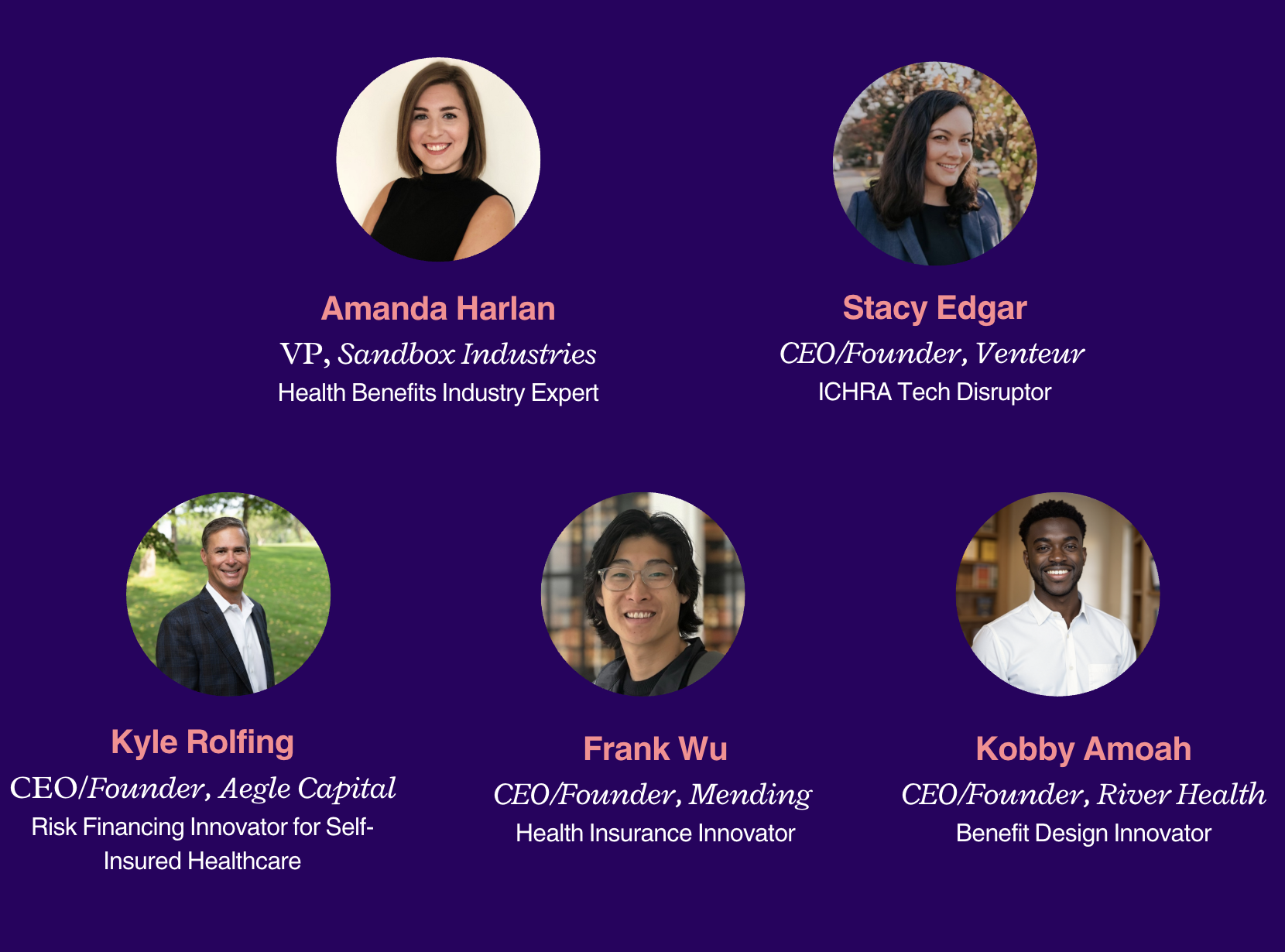Labs: Employer-First Healthcare Innovation
August 28, 2025
U.S. healthcare has undergone a decades-long transformation from institution-controlled managed care to increasingly consumer-driven models, with each era introducing new mechanisms for cost control and patient choice. The future of employer-sponsored healthcare is headed toward full consumerization, where employees make individual healthcare decisions supported by technology platforms. At the same time, employers provide defined financial contributions rather than selecting specific plans.
Wave Labs convened leaders from Mending (an AI-native insurance carrier), Venteur (an ICRA platform), River Health (hourly worker health plans), Aegle Capital (stop-loss reimbursement), and Sandbox Industries to discuss how technology, regulatory changes, and evolving consumer expectations are driving changes in employer-sponsored health plans. The panel highlighted five key takeaways evaluating the future of employer-sponsored health plans:
Consumer Empowerment Creates New Complexities
The Empowerment Paradox: Employees gain choice, but they also inherit complexity that HR previously handled. Healthcare decisions are "more emotional than financial," creating demand for AI-powered support that combines financial modeling with emotional preferences—as Venteur discovered in building decision support tools.
From Claims to Real-Time: Direct-pay models eliminate surprise billing but expose consumers to real-time pricing. Mending's low-deductible plans with transparent pricing and River Health's prepaid card system exemplify this shift toward real-time payment clarity.
Segmentation Replaces One-Size-Fits-All
Population-Specific Design: River Health targets hourly workers with retail clinics, virtual care during work hours, and prepaid cards—fundamentally different from traditional employee benefits.
Regulatory Arbitrage: Companies optimize within regulatory constraints (ACA, ERISA, state rules) rather than fighting them. Mending offers both individual market plans and employer ICRA options, while Venteur navigates the regulatory shift from B2B to retail D2C models.
Technology Enables Previously Impossible Models
AI-Driven Personalization: Modern AI processes multi-dimensional data (finances, medical history, preferences) for personalized recommendations. Venteur's AI layers emotional reactions with financial modeling, while Mending uses technology to integrate doctors seamlessly into their network.
Platform Effects: Real-time integration of payroll, provider networks, and claims data creates winner-take-most dynamics. Aegle Capital's financing products require real-time stop-loss data integration, enabling immediate claim payments and reimbursement factoring.
Partnership Strategies Beat Direct Competition
White-Label Distribution: Aegle Capital partners with major brokers who brand and own customer relationships, enabling faster market penetration and regulatory compliance. Venteur similarly white-labels for brokers and carrier partnerships.
Market Making vs. Market Taking: Companies expand total market size rather than compete for existing share—River Health serves previously uninsured hourly workers instead of replacing existing employer plans.
Financial Innovation Solves Structural Problems
Timing Over Total Cost: Healthcare financing problems often involve timing, not total expense. A $2M claim covered by stop-loss but reimbursed in 90 days creates cash flow crises for smaller employers.
Sophisticated Risk Distribution: New models enable geographic pooling through state-level individual markets (benefiting Mending’s ACA plans), temporal smoothing (multi-year payment plans), and demographic optimization—beyond traditional time/population risk pooling.
The employer healthcare market is transitioning from a defined benefit model controlled by HR departments to a defined contribution marketplace where individual employees become healthcare consumers. AI-powered decision support, real-time payment systems, and population-specific products will replace today's one-size-fits-all group plans, creating market dynamics similar to other consumer sectors where choice, transparency, and personalization drive competition. Within the next decade, choosing health insurance will feel more like selecting a streaming service than navigating bureaucratic enrollment processes, fundamentally reshaping the $1+ trillion employer healthcare market.
Part One - Employer Sponsored Healthcare Innovation
Part Two - Employer Sponsored Healthcare Innovation

